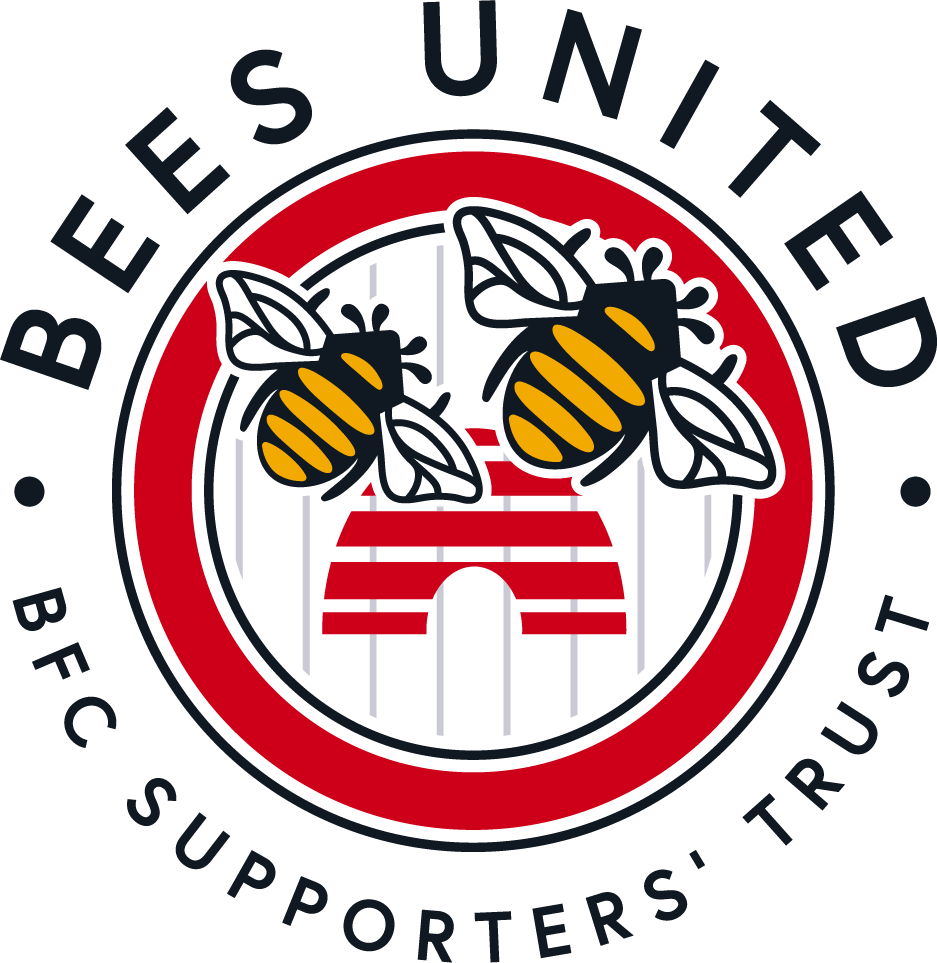The UK Government White Paper
“A sustainable future – reforming club football governance”
History and background
It is probably hard to have missed the Government publishing, on 23 February 2023, the long awaited proposals for UK football regulation. Along with many commentators, Bees United welcome this finally emerging into the public domain, trailing as it will, uniquely the creation of a new UK Football Regulator. We will not be covering all the detail in the White Paper here and as we explain, what’s published is certainly not final but the “direction of travel” is emphatic. One reason this paper is a monumental landmark in the running of sport, of football, is simply because it has taken so long after diverse attempts to do what has been lobbied by fans and clubs, as necessary, for some time.
Back in 1997 the then Government set up a Football Task Force, Chaired by David Mellor (in those days a well publicised Chelsea fan) and proposed in 1999, a permanent football audit commission with an “ombudsfan” to handle fan’s complaints. More importantly for Brentford, it led eventually to the creation of “Supporters Direct” the organisation out of which Bees United was born on 26th June 2001 and it gave us our other title, “Supporters Trust”
In those days, Supporters Direct believed that a function called a “structured dialogue” could and should be carried out most suitably through the structure of a a supporters’ trust, because of it’s democratic legal and accountable structure. Bees United is such a Supporters Trust and we are regulated by the FCA.
As has been well documented, since it was set up BU’s role has progressed through supporting and helping channel the monumental efforts of you, our members and Bees Fans, to rescue the club from Ron Noades and moving towards a period of when BU actually owned the club and thereafter the sale to Matthew Benham in May 2012. Now we proudly enjoy a formal position on the Board of Brentford FC, and hold the “BU Special Share” that gives BU rights to protect the sale of the stadium. Official recognition of the value of supporter involvement and inclusion has taken time to evolve and to become recognised as an important contribution to football management and sustainability. This White Paper followed the publication of the extensively researched, “Fan Led Review” published by Tracey Crouch MP, with input from Bees United, in November 2021.
A year later, 29 clubs wrote to the Government asking it to “get a move on” warning that clubs could be “wiped off the map” if delay continued and suggested that the “The future of the game hangs in the balance,”
It’s now arrived.
Are we happy?
Given the history of BU itself, and also having seen what has happened to other clubs (some of which have been lost to the game and their local communities), we welcome anything that will help to protect the sustainability of football clubs so that they can be enjoyed by fans for generations to come. Football has a unique role in our communities and as an industry (I don’t see people feeling they have the right to lobby the CEO of M&S to, say, stock more red jumpers just because they shop there on a Saturday!) and therefore we fully support the idea of an independent regulator and the other proposals that are intended to protect the history and heritage of all football clubs.
The devil will be in the detail, and we will await the final outcome of the White Paper as to the exact form, shape and powers of a regulator, but we hope and expect that a suitable balance will be found between owners (who do invest much of their own money in to the clubs that we call our own) and the fans, so that owners can continue to have sensible and proportionate rights to make business decisions for their clubs but without the absolute freedom to resort to casino style, roulette spinning financial decision making that could lead to a club going out of business or being re-branded or re-named so that it loses all connections with its fans and history.
Brentford, and BU, are seen as shining examples of a situation in which a club and fans can create structures whereby fans can have some rights to protect a club while an owner is still able to make good business decisions in a balanced fashion. We have seen first hand that relationships between club owners and directors and fan groups can be enhanced with good communication and dialogue and we welcome this White Paper as being an opportunity to create a situation whereby other clubs and fan groups having the opportunity to experience the sort of relationship that we have.
What does the White paper mean?
A football regulator, the only independent statutory football regulator, will be established following consultation (noting that consultation is not negotiation!) on the White Paper. Precise timings are not yet known but targeted consultation will take place very soon in 2023 and legislation will be brought forward “when Parliamentary time allows. ” Governmental timescales can be hard to predict but this is seen as a measure with cross party support.
What is the key purpose of the regulator?
- Club sustainability – the financial sustainability of individual clubs.
- Stability – the overall stability of the football pyramid.
- Cultural heritage – protecting the heritage of football clubs that matter most to fans.
What’s proposed?
The broad areas of proposals cover these more specific areas
1. Clubs will only be able to compete in competitions that are approved by the Regulator and this is to cover the threat of European breakaway leagues. The regulator will have the power to create a protective lock against English clubs joining breakaway competitions that do not meet it’s stated criteria
- Financial stability of clubs – the Regulator will hope to avoid disasters such as the Bury fiasco
- Fans’ input – the Regulator will implement a minimum standard of fan engagement and to have a club framework in place to meet regularly a representative group of fans to discuss key strategic matters at the club, and other issues of interest to supporters and to reinforce existing protections around club heritage
4. An additional owners’ and directors’ test – the government is of the view that the current test has not been robust enough or enforced adequately
5. Fairer distribution of wealth amongst all clubs – the regulator will hope that the controlling league organisers can find a reasonable formula to agree distribution of more of the (media) wealth (without “killing the goose that laid the golden egg”). The White Paper points out that c.83% of revenue earned by clubs in the top 4 divisions now sits within the Premier League, while League Two clubs account for just 1.5%. By comparison, in 1993 the Premier League’s share of revenue was 57%. Neither the White Paper nor the Regulator, will state what is right but it will expect a more balanced agreement to be struck and it will act if no such agreement is reached.
Will the regulator have teeth?
It should have! The regulator will cover 116 clubs in the top five tiers of the English professional game and will have powers to;
- license clubs – and potentially de-licence (as a last resort, a club that fails to meet the licensing criteria can ultimately be prohibited, by law, from playing professional football in the UK)
- monitor and supervise, investigate and require information gathering and sharing
- direct and approve (e.g. pre-approval for stadium relocation)
- potentially invoke sanctions
And will the regulator bite – what could those sanctions mean?
- reputational sanctions (i.e. naming and shaming) on both clubs and controlling individuals
- financial penalties on both clubs and their controlling individuals
- suspension or disqualification of controlling individuals from involvement in football
- suspension of clubs via withdrawal of licences
So, how will the regulator behave
This where the White Paper slips into some regulatory language which can seem a little obscure but Bees United feels optimistic that a balanced measured approach will evolve without any shocks or abrupt measures. The UK has long standing experience of regulation and tries to ensure that a regulator is accurate and balanced and proportionate. This doesn’t mean that the football regulator cannot do things that may not be popular to some but the phrase “light touch” is being used!
- A key function will be that of financial regulation and clubs will be obliged to supply required information as and when required and if requested on demand but much of this will be in support of some of the leagues’ existing rules.
- The Regulator will expect that “advocacy first” will prevail whereby the ruling organisations, clubs and leagues shall be encouraged to come to agreements
between themselves – or then face measures - Plenty of words are used to suggest that enforcement of its powers really will be a last resort but if behaviour is not appropriate than steps shall be taken.
Bees United thinks that similar regulatory standards have been applied in the world of data protection where responsible companies have been expected to act legally and honestly within limits of their resources but there have been some examples of application by the Information Commissioners Office of some extremely high sanctions applied to very big companies such as the well publicised fines levied at British Airways, €20m and from Luxembourg, Amazon, €746m. These regulatory fines have been levied proportionately at a higher level for companies with the financial resource and many have suggested these penalties certainly hit wrong doers but also act as examples to others.
What’s out of scope (initially)
- Women’s football, is not yet included because a “Future of Women’s Football” Review is already in progress.
- Player welfare, the industry continues to push for progress but the government sees some key gaps do still
- Equality, diversity and inclusion, the government will continue to support reform and acknowledges the industry is taking on greater accountability, in this area. (This area being given little focus has disappointed many, but in the meantime we at BU will be working to ensure that this remains on the agenda at Brentford and to work with the club in this area, and we acknowledge that the club do see this as an important area to continue to work on).
- Player agent regulation, the government will continue to liaise with the FA and the FA on incoming regulations.
- On alcohol at football, the government acknowledges the case for pilots made in the Review in the lower leagues
What won’t the regulator cover
In case you were wondering and hoping – VAR is not part of the regulators job!
The regulator will not have control, power or influence over the existing football bodies (UEFA, The FA, the Premier League, the EFL or the National League). These bodies and rules will continue to exist and be responsible for much or most of the running of football, such as the rules of the game, the competitions, football transfers and so on.
The maze of rules around “FFP” or Financial Fair Play are not in scope but regulation of club’s financial sustainability, very much is.
Finally, and sadly, we were disappointed that the Government didn’t use this opportunity to restrict or ban clappers, drums, or half and half scarves at football.
Stuart Hatcher – BU Chair
Don Tanswell – Secretary

